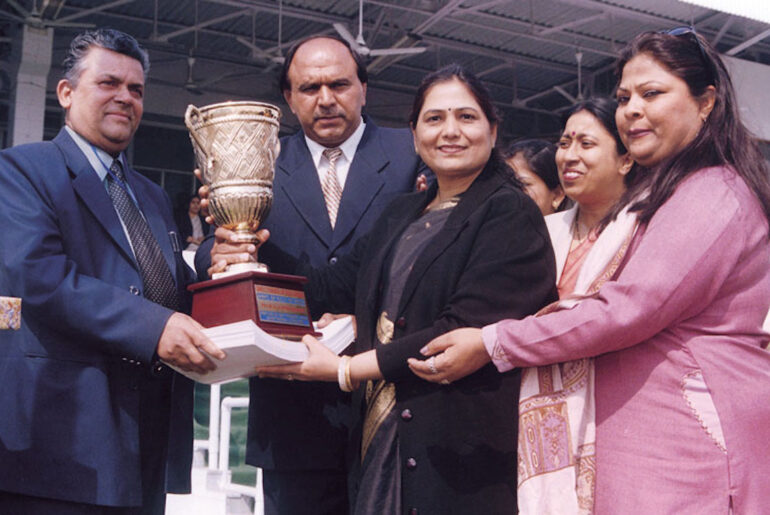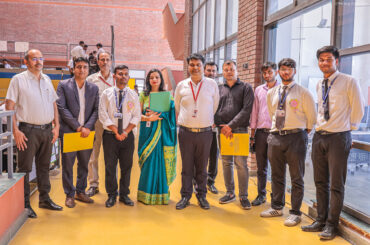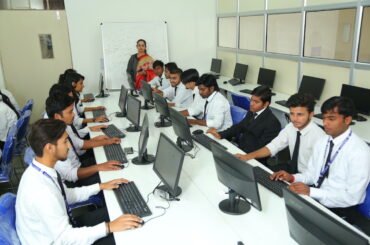Can I Do BCA Without Maths?
Can I Do BCA Without Maths? Yes, you can pursue a Bachelor of Computer Application (BCA) without having studied mathematics in 12th grade, though requirements vary by institution and country.
Here are a few points to consider:
Institution-Specific Requirements:
Some colleges and universities do require mathematics as a prerequisite for admission into their BCA course.
However, many institutions do not have this requirement and accept students from various educational backgrounds, including those without a strong foundation in mathematics.
Alternative Qualifications:
Certain institutions might require you to have studied either mathematics or computer science or informatics practices in your 12th grade.
Others might accept students with any combination of subjects as long as they meet the overall percentage or grade requirements.
BCA Entrance Exams:
Some universities conduct BCA entrance exams for BCA admissions. These exams might test basic aptitude, logical reasoning, and general awareness, and might not necessarily focus on advanced mathematics.
Clearing such entrance exam can sometimes compensate for the lack of mathematics in your previous studies.
Foundation Courses:
Some institutions offer foundation or bridge courses in mathematics for students who did not study mathematics in their 12th grade. For those asking, “Can I Do BCA Without Maths,” these courses help you gain the necessary mathematical skills required for the BCA curriculum.
Career Path:
If you plan to pursue a career in computer applications, having a basic understanding of mathematics is beneficial, as it is often integral to programming and logical problem-solving.
You might consider self-study or online courses in mathematics to strengthen your skills.
Some of the most opted courses in India and St. Andrews college or different Engineering college or Management colleges are as follows:-
- Btech
- Btech CSE
- Btech ETCE
- MTech
- BCA
- BBA
- MBA
- MCA
- DPharma – St. Andrews College of Pharmacy
- BPharma – St. Andrews College of Pharmacy
- BArch – St. Andrews College of Architecture
Importance of Mathematics in Computer Applications
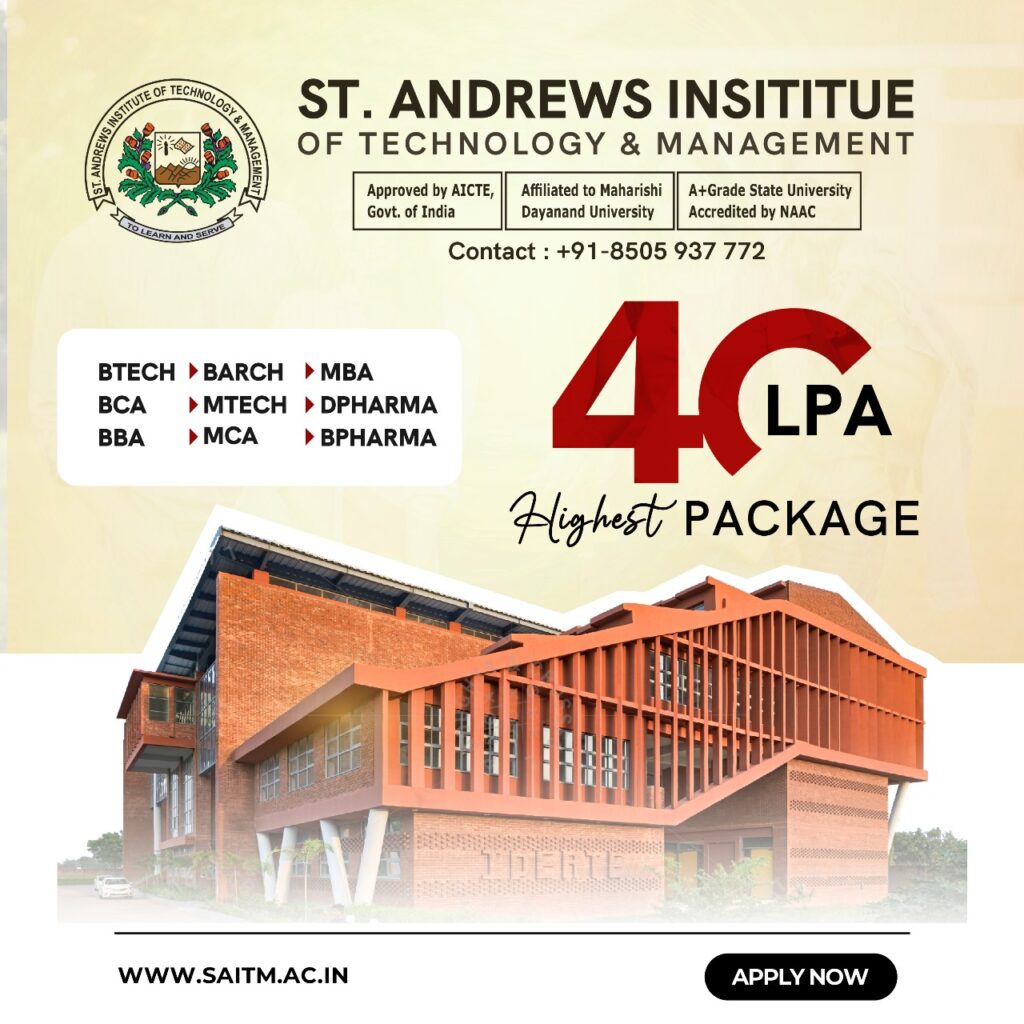
Mathematics plays a crucial role in computer applications for several reasons.
Here are some key aspects highlighting its importance:
Algorithm Development and Analysis:
Problem Solving: Mathematics helps in developing algorithms, which are step-by-step procedures or formulas for solving problems.
Efficiency: It enables the analysis of algorithm efficiency in terms of time and space complexity, which is crucial for optimizing software performance.
Programming:
Logical Thinking: Mathematics enhances logical thinking and precision, essential for writing correct and efficient code.
Control Structures: Concepts such as loops, recursion, and conditional statements are grounded in mathematical logic.
Data Structures:
Design and Implementation: Understanding data structures like arrays, linked lists, stacks, queues, trees, and graphs requires mathematical knowledge, particularly in topics like discrete mathematics and graph theory.
Algorithm Optimization: Mathematics helps in choosing and implementing the right data structure to optimize the performance of applications.
Cryptography and Security:
Encryption Algorithms: Cryptography relies heavily on number theory and abstract algebra to create secure encryption algorithms for data protection.
Security Protocols: Mathematical models are used to design and verify security protocols.
Computer Graphics and Image Processing:
Transformations: Linear algebra is essential for 2D and 3D transformations, including rotation, translation, and scaling in computer graphics.
Image Manipulation: Techniques like filtering, enhancement, and compression in image processing are based on mathematical concepts.
Artificial Intelligence and Machine Learning:
Algorithms: Machine learning algorithms, such as linear regression, decision trees, neural networks, and clustering, are based on mathematical principles from statistics, calculus, and linear algebra.
Data Analysis: Statistical methods are crucial for analyzing and interpreting data in AI applications.
Database Management:
Query Optimization: Mathematical techniques are used for optimizing queries in databases to improve performance.
Data Modeling: Concepts from set theory and relational algebra are fundamental in designing and managing databases.
Networking:
Data Transmission: Understanding mathematical concepts like probability and statistics helps in optimizing data transmission and error correction in networks.
Network Protocols: Design and analysis of network protocols involve mathematical modeling and simulation.
Software Development and Testing:
Formal Verification: Mathematical methods are used to formally verify the correctness of software systems.
Test Coverage: Ensuring comprehensive test coverage involves combinatorial mathematics.
BCA Course Overview
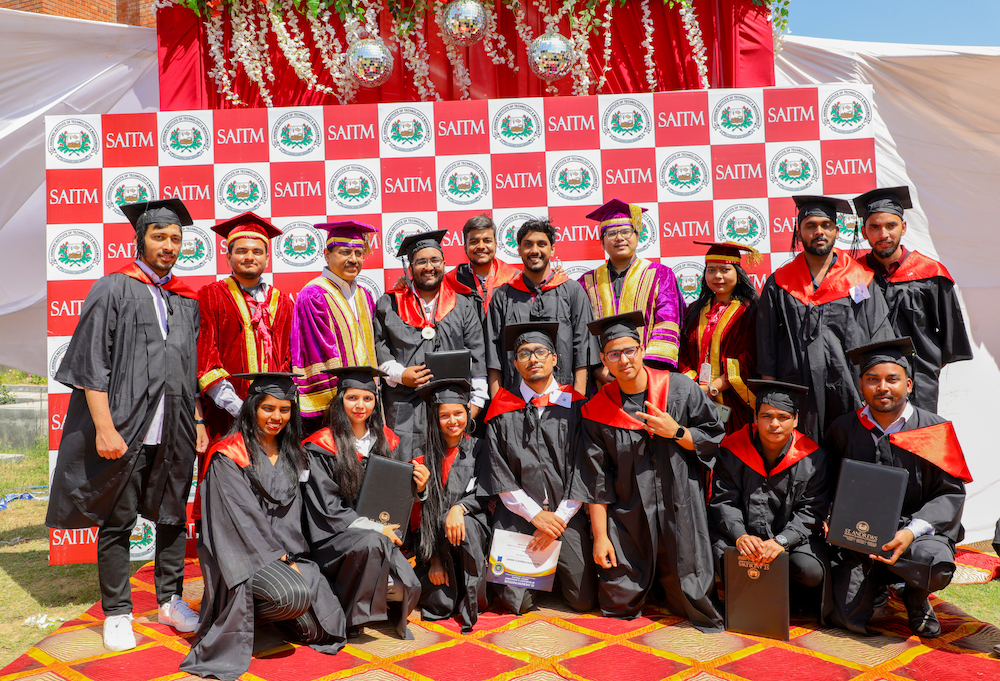
The Bachelor of Computer Application (BCA) is a three-year undergraduate degree program that equips students with foundational and advanced knowledge in computer science and its various applications.
This comprehensive course spans six semesters, each designed to progressively build the students’ technical proficiency, theoretical understanding, and practical skills.
At the outset, the BCA curriculum introduces students to fundamental programming languages, beginning with C programming.
This initial phase covers basic programming constructs, data types, operators, control structures, functions, arrays, pointers, and file handling. For those wondering, “Can I Do BCA Without Maths,” as students advance, they move on to C++ programming, where they delve into object-oriented programming concepts such as classes and objects, inheritance, polymorphism, and exception handling.
The journey through programming continues with Java, focusing on its object-oriented principles, multi-threading, applets, and networking capabilities.
A significant component of the BCA course is Database Management Systems (DBMS). Students learn about relational database concepts, SQL, normalization, database design, and management.
This knowledge is crucial for developing and maintaining robust and efficient databases, a fundamental aspect of modern computing. Alongside DBMS, web development is another core area of study.
Students are introduced to HTML, CSS, and JavaScript, gaining essential skills in front-end web development. For those asking, “Can I Do BCA Without Maths,” further backend technologies such as PHP and ASP.NET are explored, providing a holistic understanding of web development.
Benefits of Studying BCA Program
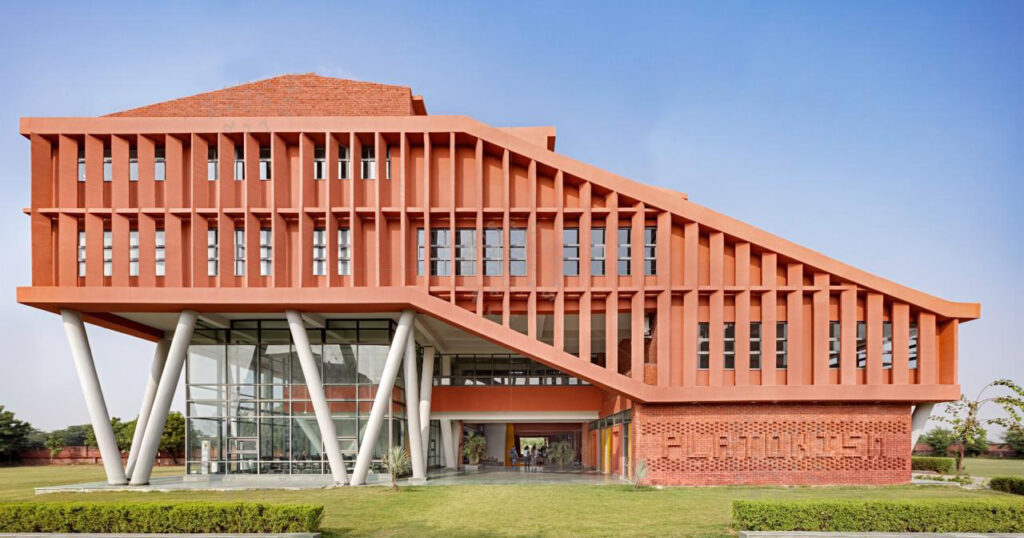
Pursuing a (BCA) Bachelor of Computer Application offers numerous advantages that prepare students for a successful career in the field of information technology.
Here are the key benefits of studying a BCA course:
Solid Foundation in Computer Science
Comprehensive Curriculum: The BCA course covers a wide range of subjects, including programming languages, database management, software engineering, web development, and computer networks. This broad curriculum ensures students gain a well-rounded understanding of computer science fundamentals.
Practical Skills: Alongside theoretical knowledge, BCA emphasizes practical skills through laboratory sessions, projects, and internships, which are essential for real-world application.
Career Opportunities
Diverse Roles: BCA graduates are eligible for various roles in the IT industry, such as software developers, web developers, system analysts, database administrators, network administrators, software testers, and IT support specialists.
High Demand: The IT sector is constantly growing, with a high demand for skilled professionals. BCA graduates are well-positioned to take advantage of this demand.
Strong Job Prospects
Employability: BCA graduates are highly employable due to their comprehensive training and practical experience. They are equipped to handle various technical roles, making them valuable assets to employers.
Good Salary Packages: IT professionals often enjoy competitive salary packages, which can grow significantly with experience and expertise.
Pathway to Higher Education
Advanced Studies: BCA serves as a stepping stone for higher education. Graduates can pursue a Master of Computer Applications (MCA), MBA with a focus on Information Technology, or other specialized master’s programs in computer science or related fields.
Research Opportunities: For those inclined towards academia or research, a BCA degree provides a strong foundation to pursue Ph.D. programs and contribute to advancements in computer science.
Entrepreneurial Opportunities
Startup Potential: With the skills acquired during the BCA course, graduates can start their own tech companies or freelance as independent developers, offering services such as app development, web design, and IT consulting.
Innovation and Creativity: The program encourages innovation and creativity, allowing students to develop unique solutions to real-world problems, which is essential for entrepreneurial success.
Industry-Relevant Skills
Programming Proficiency: BCA students gain proficiency in various programming languages such as C, C++, Java, and Python, which are essential for software development.
Technical Expertise: The course includes training in database management, network configuration, web development, and software engineering, ensuring graduates have the technical expertise required by employers.
Adaptability and Problem-Solving Skills
Critical Thinking: The curriculum is designed to enhance critical thinking and problem-solving skills, which are crucial for tackling complex technical challenges.
Adaptability: With a solid grounding in multiple areas of computer science, a BCA graduate is adaptable and can quickly learn and implement new technologies and methodologies.
Global Opportunities
International Scope: The skills and knowledge gained from a BCA degree are globally recognized, allowing graduates to seek employment opportunities in various countries.
Multinational Companies: Many multinational companies look for talented IT professionals, and BCA graduates often have the chance to work with leading global firms.
Personal Development
Teamwork and Collaboration: Group projects and internships foster teamwork and collaboration skills, preparing students for collaborative work environments.
Communication Skills: Presentations, reports, and group discussions during the course help improve communication skills, which are essential for career advancement.
Technological Awareness
Staying Updated: The IT industry evolves rapidly, and BCA cousre often include the latest technological trends and advancements, ensuring students are up-to-date with current industry standards.
Continuous Learning: The program instills a habit of continuous learning, encouraging graduates to keep enhancing their skills throughout their careers.
Pros and Cons of Doing BCA Degree Without Maths

Pros
Accessibility:
Broader Eligibility: “Can I Do BCA Without Maths?” Many students who did not study mathematics in high school can still pursue a BCA degree, making the field more accessible to a wider range of students.
Alternative Backgrounds: Students from various educational backgrounds, such as commerce or humanities, can enter the IT field through BCA without needing a strong math foundation.
Focus on Core IT Skills:
Practical Skills Emphasis: BCA course often emphasize practical IT skills like programming, web development, and database management, which can be learned without advanced mathematics.
Hands-on Experience: The curriculum includes extensive lab work, projects, and internships, allowing students to gain hands-on experience and practical knowledge in computer applications.
Career Opportunities:
Diverse Roles: Graduates can pursue various roles in the IT industry, such as software developers, web developers, system analysts, and IT support specialists, many of which do not require advanced mathematical skills.
High Demand: The IT sector has a high demand for skilled professionals, and many roles prioritize practical IT skills over advanced mathematics.
Personal Development:
Soft Skills: BCA course helps to develop critical thinking, problem-solving, and communication skills, which are valuable in any professional setting.
Adaptability: The diverse skill set gained through BCA can make graduates adaptable to different roles and technologies in the IT industry.
Cons
Limited Understanding of Certain Concepts:
Algorithm Complexity: Without a strong background in mathematics, students might find it challenging to understand and analyze complex algorithms and their efficiency.
Advanced Topics: Fields like data science, machine learning, and cryptography require a strong foundation in mathematics, which might be a barrier for students without this background.
Competitive Disadvantage:
Job Market: In competitive job markets, candidates with strong mathematical skills might have an edge, especially for roles that require data analysis, algorithm design, or advanced programming.
Further Education: Pursuing advanced degrees like MCA or specialized master’s programs might be more challenging without a solid math foundation, as these often involve advanced mathematical concepts.
Limitations in Career Advancement:
Specialized Roles: Roles in fields like AI, machine learning, and quantitative analysis often require advanced math skills, potentially limiting career advancement opportunities for those without a math background.
Technical Depth: Without mathematics, students might lack the technical depth needed for certain high-level positions in research and development or in technical leadership roles.
Self-Learning Requirement:
Additional Effort: Students might need to invest additional time in self-learning mathematical concepts that are necessary for certain aspects of computer science, which can be demanding alongside their regular coursework.
Supplementary Courses: Enrolling in supplementary math courses or online resources might be necessary to bridge the knowledge gap, requiring extra effort and resources.
BCA Eligibility Criteria

The eligibility criteria for pursuing a Bachelor of Computer Applications (BCA) degree typically vary slightly among universities and colleges. However, a common question among prospective students is, “Can I Do BCA Without Maths?” Despite these variations, there are general requirements commonly observed across institutions offering this program.
Here are the typical eligibility criteria for BCA:
Educational Qualifications:
12th Standard: Candidates must have completed the 10+2 or equivalent examination from a recognized board or institution.
Subjects: While mathematics is often not mandatory, some institutions may require candidates to have studied mathematics as one of the subjects in 10+2. For those asking, “Can I Do BCA Without Maths,” there are many colleges that offer BCA courses without a mathematics requirement.
Minimum Percentage
Most institutions specify a minimum aggregate percentage in the qualifying examination, often ranging from 45% to 50%. This requirement may vary based on the college or university.
Age Limit
Generally, there is no specific age limit for admission to BCA course. Candidates of any age who meet the educational qualifications can apply.
Entrance Exam
Some universities and colleges may conduct entrance examinations for admission to their BCA course. These exams assess the candidate’s aptitude in subjects like mathematics, reasoning, and general awareness. Admission may be based on the performance in these entrance exam, in addition to the academic qualifications.
Reservations
Reservation policies may apply as per government regulations, providing relaxation in eligibility criteria for candidates belonging to certain categories such as SC/ST/OBC and differently-abled candidates.
English Language Proficiency
Some institutions may require candidates to demonstrate proficiency in the English language through standardized tests like TOEFL or IELTS, especially for international students or in institutions where the medium of instruction is English.
Documentary Requirements
Candidates are usually required to submit copies of their 10th and 12th standard mark sheets, transfer certificate, conduct certificate, and any other documents as specified by the institution.
BCA Admission Process
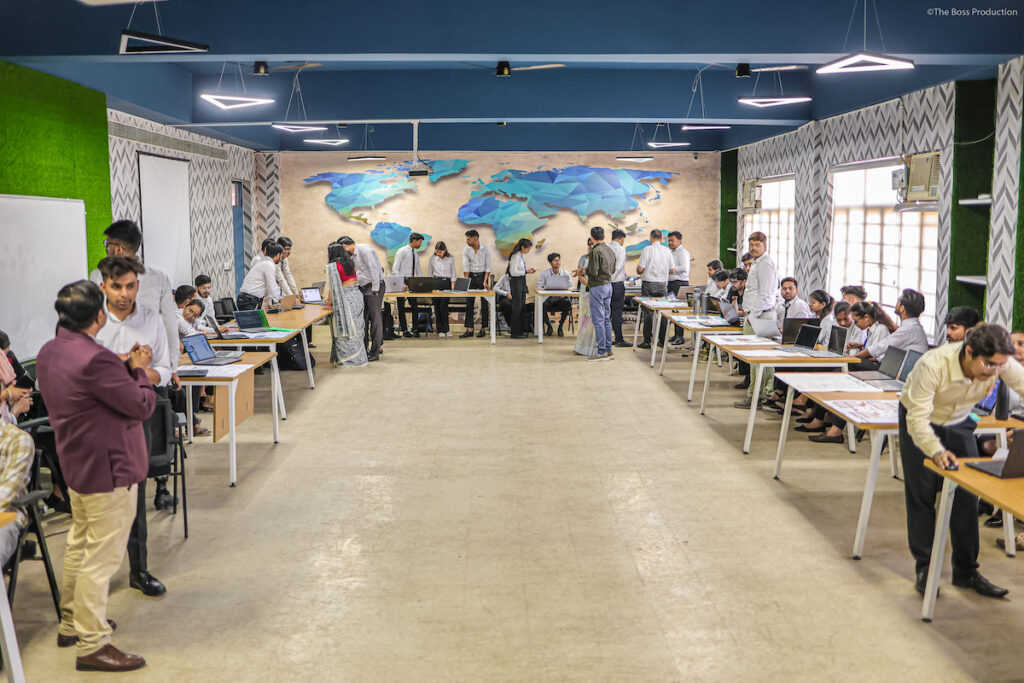
The admission process for (BCA) Bachelor of Computer Applications typically involves several steps that candidates need to follow if he/she wants to pursue BCA.
Here’s a general overview of the BCA admission process:
Check Eligibility Criteria:
Educational Qualifications: Ensure you meet the minimum educational qualifications required by the college or university offering the BCA course. This usually includes completion of 10+2 or equivalent from a recognized board or institution.
Minimum Percentage: Check if there is a minimum aggregate percentage requirement in the qualifying examination (often around 45% to 50%, but this can vary).
Other Requirements: Some colleges may require specific subjects in 10+2, such as mathematics or computer science, though many BCA course do not have a strict mathematics requirement.
Application Form:
Obtain the application form either online through the college/university website or offline from the admissions office.
Fill out the application form carefully with accurate personal and educational details.
Entrance Examinations (if applicable):
Some colleges and universities conduct entrance examinations for admission to their BCA degree.
Prepare for and appear in the entrance exam, which may test your aptitude in subjects like mathematics, reasoning, English, and general knowledge.
Merit-Based Admission:
Admission to BCA courses is often based on merit, which considers the candidate’s performance in the qualifying examination (10+2) and/or entrance exam.
Colleges and universities publish merit lists based on the aggregate scores of candidates.
Counselling Process (if applicable):
After the publication of merit lists, some institutions may conduct counselling sessions for shortlisted candidates.
Counselling helps in guiding candidates through the course selection process and understanding the college’s facilities, fees, and other relevant details.
Document Verification:
Shortlisted candidates are required to appear for document verification at the college or university.
Carry original documents (10th and 12th mark sheets, transfer certificate, conduct certificate, etc.) along with photocopies as required.
Payment of Fees:
Once selected and documents are verified, candidates need to pay the admission fees within the stipulated time to confirm their admission.
Commencement of Classes:
After completing the admission formalities and payment of fees, students can attend orientation sessions and start attending classes as per the academic schedule.
Top BCA Colleges in India

In India, there are several reputed colleges offering (BCA) Bachelor of Computer Applications programs known for their quality education, infrastructure, and faculty.
Here are some of the top BCA college among all BCA Colleges in India:
National Institute of Technology (NITs):
NITs are prestigious engineering institutions in India that also offer BCA courses.
Some notable NITs include NIT Trichy, NIT Warangal, NIT Surathkal, NIT Calicut, etc.
St. Andrews Institute of Technology and Management:
St. Andrews Institute of Technology & Management is one of the prestigious colleges in India based in the industrial hub of India – Gurgaon, Delhi (NCR).
It provides a 3-year undergraduate BCA course for students interested in computer-related careers.
Indira Gandhi National Open University (IGNOU):
IGNOU is a central university known for its distance education programs, including BCA.
It offers flexibility in learning through its open and distance education mode.
University of Delhi (DU):-
DU offers BCA courses through various affiliated colleges like Shaheed Rajguru College of Applied Sciences for Women, Maharaja Agrasen Institute of Management Studies, etc.
DU is known for its rigorous academic standards and extensive resources.
Jamia Millia Islamia (JMI), New Delhi:
JMI is a prominent central university offering BCA under the Faculty of Engineering and Technology.
It is known for its diverse student body and focus on research and innovation.
University of Mumbai:
The University of Mumbai and its affiliated colleges offer BCA course known for their comprehensive curriculum and industry-oriented approach.
Colleges like K. J. Somaiya College of Arts and Commerce and SIES College of Arts, Science & Commerce are well-regarded.
Pondicherry University:
Pondicherry University, a central university, offers BCA course through its School of Computer Science.
It is known for its picturesque campus and quality education.
Aligarh Muslim University (AMU):
AMU offers BCA course through its Faculty of Science.
It is one of the oldest universities in India known for its rich history and academic excellence.
Banaras Hindu University (BHU):
BHU, a central university, offers BCA course through its Faculty of Science.
It is known for its sprawling campus and cultural heritage.
Jawaharlal Nehru University (JNU), New Delhi:
JNU offers BCA course through its School of Computer and Systems Sciences.
Known for its emphasis on social sciences and research, JNU provides a unique academic environment.
University of Calcutta:
The University of Calcutta and its affiliated colleges offer BCA course known for their academic rigor and industry connections.
Colleges like St. Xavier’s College, Kolkata and Maulana Azad College are prominent choices.
Top BCA Colleges in India offering BCA Without Maths
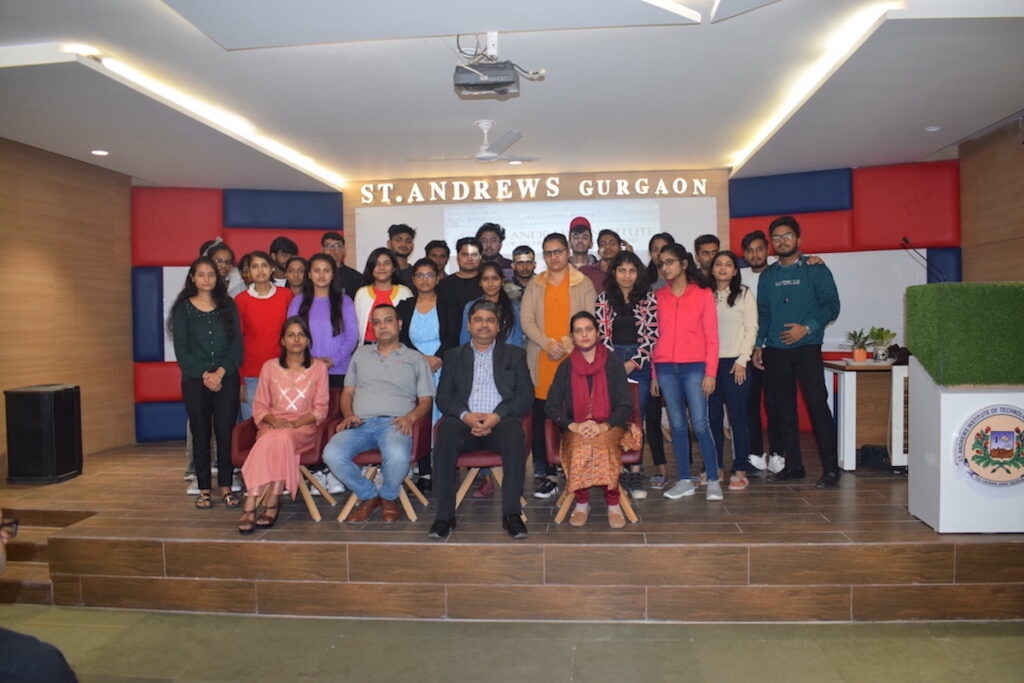
Finding a BCA college in India that offers the BCA program without requiring mathematics as a mandatory subject can be challenging, as many BCA courses include mathematics either as a core subject or as part of the curriculum. For those wondering, “Can I Do BCA Without Maths,” some universities and colleges may offer BCA courses where mathematics is not a compulsory requirement.
Here are a few options to consider:
Indira Gandhi National Open University (IGNOU):-
IGNOU offers a BCA program through distance education, which does not explicitly require mathematics as a compulsory subject for BCA admission. The program focuses on computer applications and software development.
St. Andrews Institute of Technology and Management;
SAITM is a renowned college for BCA in Delhi NCR. It provides a 3-year undergraduate BCA course for students interested in computer-related careers. It does not require Maths as a compulsory subject.
University of Delhi (DU):
DU offers BCA courses through various affiliated colleges where mathematics may not be mandatory. Colleges like Shaheed Rajguru College of Applied Sciences for Women, Maharaja Agrasen Institute of Management Studies, etc., may have variations in their curriculum where mathematics is not compulsory.
Jamia Millia Islamia (JMI), New Delhi:-
JMI offers a BCA program under the Faculty of Engineering and Technology. While mathematics is often part of the entrance examination syllabus, the BCA program itself may not strictly require mathematics as a mandatory subject.
Pondicherry University:-
Pondicherry University offers a BCA program through its School of Computer Science. The specific curriculum details may vary, but some institutions under Pondicherry University structure their BCA programs without a strict mathematics requirement.
Aligarh Muslim University (AMU):-
AMU offers a BCA program through its Faculty of Science. While mathematics may be part of the entrance examination syllabus, the BCA program itself may not necessarily require mathematics as a compulsory subject.
Banaras Hindu University (BHU):-
BHU offers a BCA program through its Faculty of Science. The curriculum may focus more on computer applications and software development rather than advanced mathematics.
University of Mumbai:-
The University of Mumbai and its affiliated colleges offer BCA programs where mathematics may not be compulsory. Institutions like K. J. Somaiya College of Arts and Commerce and SIES College of Arts, Science & Commerce are known for their flexible BCA curriculum.
BCA Curriculum
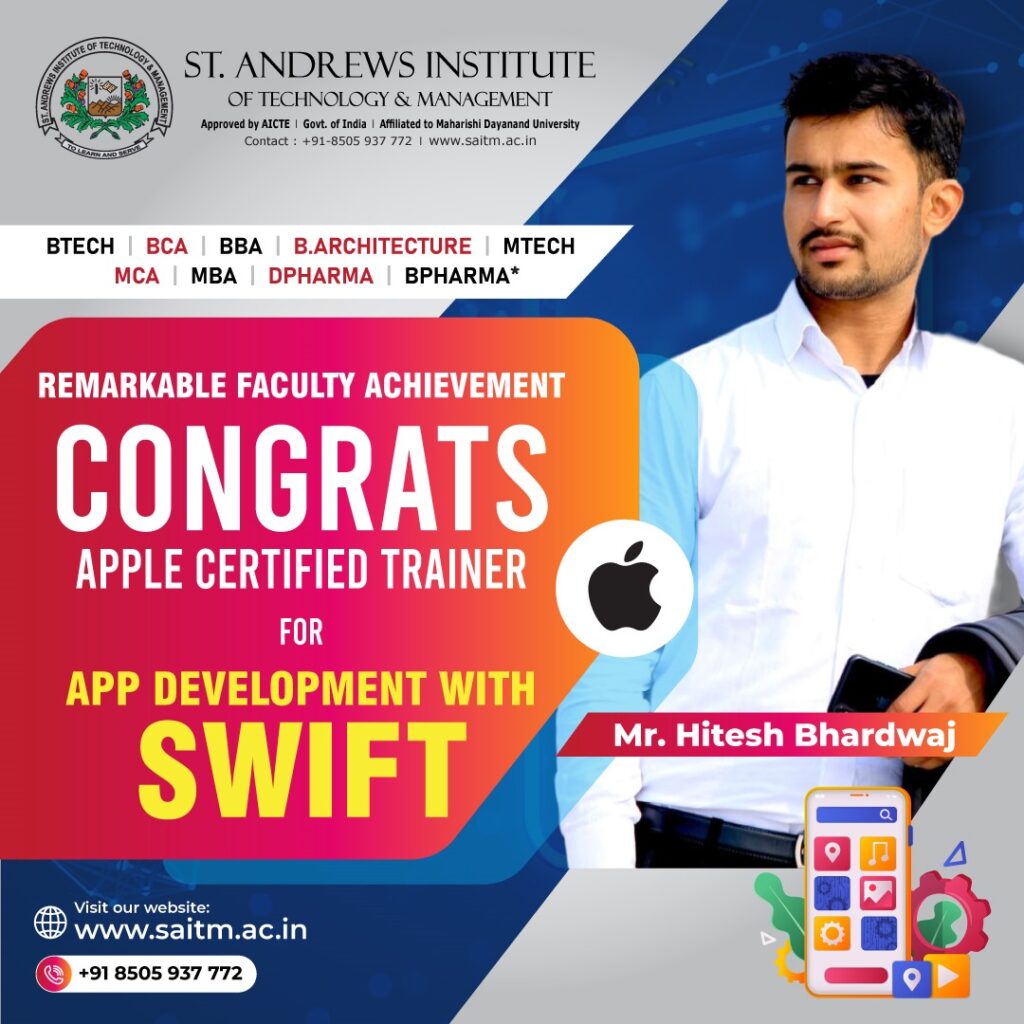
The Bachelor of Computer Applications (BCA) curriculum typically spans over three years and is designed to provide students with a strong foundation in various aspects of computer science and applications. While specific courses and their depth may vary slightly between universities and colleges.
Here is a generalized overview of the BCA curriculum:
First Year (Semester 1 and 2)
Fundamentals of Computers:
Introduction to computers, history, evolution, basic components, and architecture.
Operating systems, file systems, and basic computer applications.
Programming Principles and Algorithms:
Basics of programming languages like C, C++, and Java.
Problem-solving techniques, algorithms, and flowcharting.
Mathematics for Computing:
Mathematical foundations necessary for computing, including discrete mathematics, logic, sets, relations, and functions.
Computer Organization and Architecture:
Basics of computer organization, CPU, memory, I/O devices, and assembly language programming.
Data Structures:
Introduction to data structures such as arrays, linked lists, stacks, queues, trees, and graphs.
Algorithms for searching, sorting, and manipulating data.
Database Management Systems (DBMS):
Concepts of DBMS, relational databases, SQL queries, normalization, and transactions.
Communication Skills:
Development of verbal and written communication skills necessary for professional interaction and presentations.
Second Year (Semester 3 and 4)
Object-Oriented Programming using C++/Java:
Advanced concepts of object-oriented programming (OOP), including inheritance, polymorphism, encapsulation, and abstraction.
Computer Networks:
Fundamentals of computer networking, OSI model, TCP/IP protocols, LAN, WAN, and wireless networks.
Software Engineering:
Software development life cycle (SDLC), requirements analysis, design principles, testing, and quality assurance.
Web Technology:
HTML, CSS, JavaScript, server-side scripting languages (e.g., PHP, ASP.NET), web servers, and frameworks.
Operating Systems:
Concepts of operating systems, processes, threads, scheduling, memory management, and file systems.
Principles of Management and Entrepreneurship:
Introduction to management principles, organizational behavior, leadership, and basics of entrepreneurship.
Third Year (Semester 5 and 6)
Mobile Applications Development:
Development of mobile applications using platforms like Android and iOS, mobile UI/UX design principles.
Data Warehousing and Data Mining:
Concepts of data warehousing, data mining techniques, data preprocessing, and analysis.
Cloud Computing:
Introduction to cloud computing, virtualization, cloud service models (IaaS, PaaS, SaaS), and cloud security.
Project Work and Internship:
Practical application of learned concepts through a major project work, often done in collaboration with industry partners.
Internship to gain hands-on experience in a real-world IT environment.
Electives (Optional):
Depending on the university, students may choose elective courses in specialized areas like artificial intelligence, machine learning, cybersecurity, etc.
Soft Skills and Personality Development:
Continued emphasis on soft skills development, including interpersonal skills, teamwork, and professional ethics.
BCA Specialisations
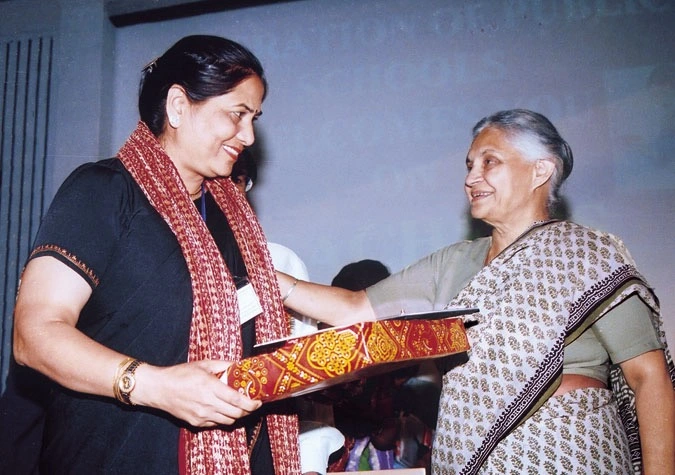
Bachelor of Computer Applications (BCA) programs typically offer specializations or elective courses in specific areas of interest within the field of computer applications and information technology. A common question that arises is, “Can I Do BCA Without Maths?” These specializations allow students to deepen their knowledge and skills in particular domains, aligning with their career aspirations. While the availability of specializations may vary between universities and colleges, the core intent remains the same.
Here are some common BCA specializations:
Software Development:
Focuses on programming languages, software engineering principles, and application development.
Includes courses in advanced programming, software testing, software project management, and software architecture.
Web Development:
Concentrates on technologies and frameworks used in developing websites and web applications.
Covers HTML, CSS, JavaScript, server-side scripting (e.g., PHP), databases, web frameworks (e.g., Angular, React), and web security.
Database Management Systems (DBMS):
Specialization in managing and administering databases.
Includes courses on database design, SQL programming, data warehousing, data mining, database security, and big data analytics.
Networking:-
Focuses on computer networks, network administration, and security.
Covers network protocols, LAN/WAN configuration, network security principles, wireless networks, and network troubleshooting.
Cyber Security:
Deals with protecting computer systems, networks, and data from cyber threats.
Includes courses on ethical hacking, network security, cryptography, cyber laws, digital forensics, and secure coding practices.
Mobile Application Development:
Specialization in designing and developing mobile applications for platforms like Android and iOS.
Covers mobile UI/UX design, mobile app frameworks (e.g., Flutter, React Native), mobile databases, and mobile security.
Artificial Intelligence and Machine Learning:-
Focuses on AI algorithms, machine learning models, and applications.
Includes courses on data analytics, pattern recognition, natural language processing (NLP), computer vision, and AI ethics.
Cloud Computing:
Concentrates on cloud infrastructure, services, and deployment models.
Covers virtualization, cloud security, cloud service models (IaaS, PaaS, SaaS), containerization (e.g., Docker, Kubernetes), and cloud governance.
E-commerce:
Specialization in e-commerce technologies and business models.
Includes courses on e-commerce platforms, online payment systems, digital marketing, e-commerce security, and business analytics for e-commerce.
Data Science:
Focuses on extracting insights and knowledge from data.
Includes courses on data visualization, statistical analysis, predictive modeling, machine learning algorithms, big data technologies (e.g., Hadoop, Spark), and data ethics.
Job Opportunities After BCA Without Maths
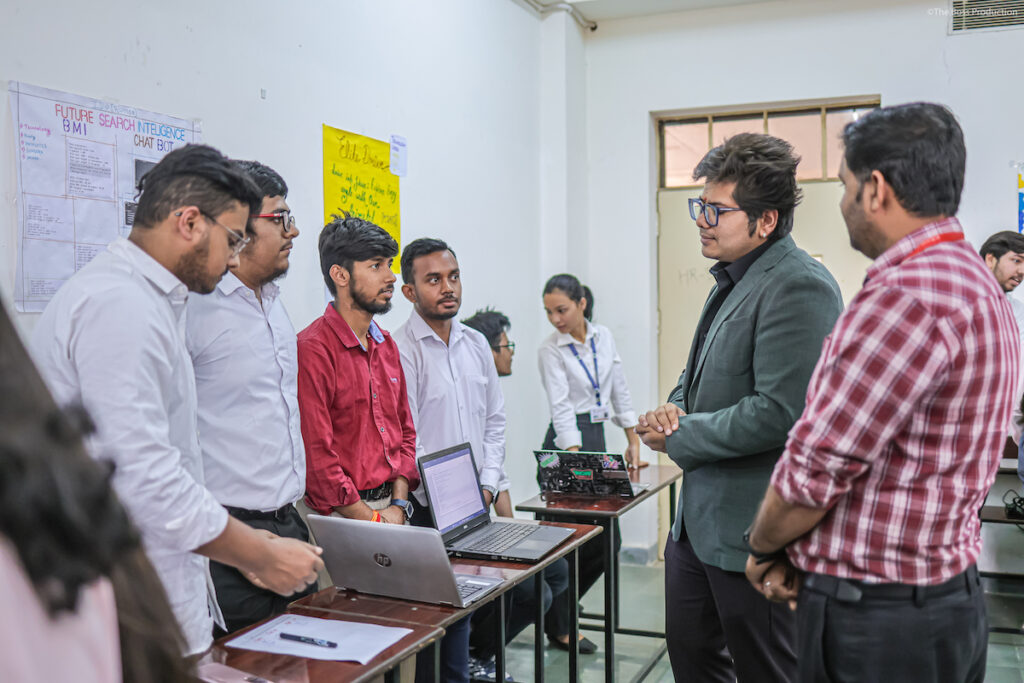
After completing a Bachelor of Computer Applications (BCA) without a mandatory mathematics requirement, graduates still have a wide range of career opportunities in the IT industry. While mathematics is valuable in certain specialized areas like data science and algorithm design, many roles in IT focus more on practical skills in computer applications and software development.
Here are some career opportunities that BCA graduates without a strong mathematics background can pursue:
Software Developer/Engineer:
Designing, developing, testing, and maintaining software applications.
Skills in programming languages like Java, C++, Python, or web development technologies (HTML, CSS, JavaScript) are crucial.
Web Developer:
Building and maintaining websites and web applications.
Proficiency in front-end (HTML, CSS, JavaScript) and back-end (PHP, Python, Node.js) development is essential.
Mobile App Developer:
Creating applications for mobile devices (Android, iOS).
Knowledge of mobile app development frameworks (Flutter, React Native) and mobile UI/UX design is valuable.
Database Administrator (DBA):
Managing and maintaining databases, ensuring data security and integrity.
Proficiency in database management systems (SQL, MySQL, Oracle) and data warehousing concepts.
System Analyst:
Analyzing and designing information systems to meet organizational needs.
Skills in systems analysis, requirements gathering, and software architecture.
Network Administrator:
Managing and maintaining computer networks within an organization.
Knowledge of network protocols, configurations, and network security principles.
IT Support Specialist/Helpdesk Analyst:
Providing technical support and troubleshooting for hardware and software issues.
Strong problem-solving and communication skills are essential.
Quality Assurance Analyst/Tester:
Ensuring software applications meet quality standards and functional requirements through thorough testing.
Knowledge of testing methodologies and tools (e.g., Selenium, JUnit).
Technical Writer:
Creating documentation for software products, including user manuals, technical specifications, and help guides.
Strong writing skills and the ability to simplify technical concepts for non-technical users.
UI/UX Designer:
Designing user interfaces and experiences for software applications and websites.
Skills in user research, wireframing, prototyping, and usability testing.
Project Manager (IT):
Overseeing IT projects from initiation to completion, ensuring they are delivered on time and within budget.
Requires strong organizational, leadership, and communication skills.
Digital Marketing Specialist:
Using digital channels (social media, email, SEO) to promote products or services.
Analytical skills and understanding of digital marketing tools and strategies.
Top Recruiters for BCA Graduates

BCA (Bachelor of Computer Applications) graduates are in high demand across various sectors of the IT industry. Many reputable companies and organizations actively recruit BCA graduates for a wide range of roles that leverage their skills in software development, database management, networking, and more. Here are some of the top recruiters for BCA graduates in India and globally:
IT Services and Consulting Companies:
TCS (Tata Consultancy Services)
Infosys
Wipro
Cognizant
Accenture
Capgemini
HCL Technologies
Tech Mahindra
IBM India
DXC Technology
Product-based IT Companies:
Microsoft
Amazon
Oracle
Adobe
Cisco Systems
SAP
Intel
NVIDIA
VMware
Banking, Financial Services, and Insurance (BFSI):
ICICI Bank
HDFC Bank
Axis Bank
State Bank of India (SBI)
CitiBank
Standard Chartered Bank
Bajaj Finserv
HDFC Life
LIC (Life Insurance Corporation of India)
Tata AIG
E-commerce and Technology Startups:
Flipkart
Amazon India
Paytm
Swiggy
Zomato
Ola
Myntra
MakeMyTrip
Snapdeal
Grofers
IT Research and Development:
IBM Research
Microsoft Research
Google Research
Tata Research Development and Design Centre (TRDDC)
Infosys Labs
Accenture Labs
Government Organizations and Public Sector Undertakings (PSUs):
National Informatics Centre (NIC)
Indian Space Research Organisation (ISRO)
Defence Research and Development Organisation (DRDO)
Bharat Electronics Limited (BEL)
Oil and Natural Gas Corporation (ONGC)
Telecom Companies:
Bharti Airtel
Vodafone Idea
Reliance Jio
Education and Research Institutions:
Indian Institutes of Technology (IITs)
IIMs (Indian Institutes of Management)
Indian Statistical Institute (ISI)
ICAR (Indian Council of Agricultural Research)
Council of Scientific and Industrial Research (CSIR)
BCA Graduates Expected Salary
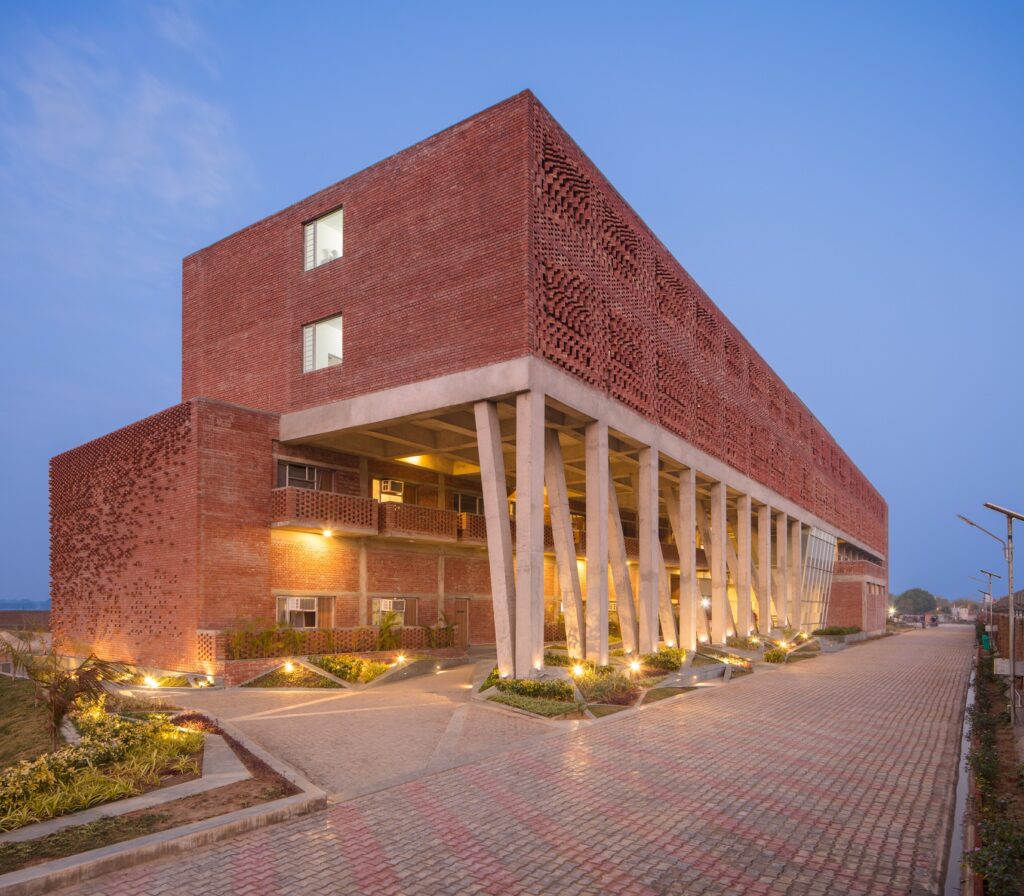
Entry-Level Salaries:
The starting salary for BCA graduates typically ranges between ₹3.5 lakh to ₹6 lakh per annum in India, depending on factors such as employer, location, skills, and academic performance.
Entry-level positions in software development, web development, and IT support generally offer competitive salaries.
Mid-Level and Senior Positions:
With 2-5 years of experience, BCA graduates can expect to earn between ₹6 lakh to ₹12 lakh per annum.
Specialized roles in areas like cybersecurity, data analytics, and cloud computing can command higher salaries based on demand and expertise.
Experience and Skill-Based Growth:
Salaries can significantly increase with experience and acquisition of in-demand skills such as proficiency in specific programming languages, expertise in emerging technologies, and managerial capabilities.
Senior-level positions like IT project manager, senior software engineer, IT consultant, etc., offer salaries upwards of ₹15 lakh per annum or more, depending on responsibilities and organizational hierarchy.
Industry Variations:
IT services companies, multinational corporations, and technology startups often offer competitive salaries and additional perks like bonuses, stock options, and healthcare benefits.
Salary variations may exist based on the geographical location (metros vs. non-metros) and industry sectors (IT vs. non-IT).
FAQs
Can I pursue BCA without having studied mathematics in high school?
Yes, many universities and colleges in India offer BCA programs that do not require mathematics as a mandatory subject in high school.
Will I face any difficulties in BCA if I haven’t studied mathematics in high school?
While mathematics can be helpful in understanding certain concepts in computer science, BCA programs are designed to teach foundational mathematics and logic required for computing. For those asking, “Can I Do BCA Without Maths,” most programs include introductory mathematics courses tailored to suit students without a strong mathematics background.
What subjects are typically covered in the BCA curriculum?
The BCA curriculum usually includes subjects like programming languages (C, C++, Java), data structures, database management systems, computer networks, software engineering, web development, and more. For those asking, “Can I Do BCA Without Maths,” these subjects focus on practical applications in computer science rather than advanced mathematics.
Are there any prerequisites or requirements for BCA admission ?
BCA admission requirements vary by institution, but typically include completion of high school (10+2) with a certain percentage of marks. For those wondering, “Can I Do BCA Without Maths,” some colleges may require proficiency in English and logical reasoning rather than mathematics specifically.
What career opportunities are available after completing BCA without mathematics?
BCA graduates without a strong mathematics background can pursue careers as software developers, web developers, system analysts, database administrators, IT consultants, and more. For those asking, “Can I Do BCA Without Maths,” these roles emphasize practical skills in programming, software development, and IT applications.
Can I pursue higher studies after BCA without mathematics?
Yes, BCA graduates can pursue higher studies such as Master of Computer Applications (MCA), MBA in Information Technology, or specialized master’s courses in computer science, cybersecurity, data science, etc. For those wondering, “Can I Do BCA Without Maths,” higher studies often provide opportunities to specialize further in areas of interest.
How can I prepare for BCA if I haven’t studied mathematics in high school?
You can prepare by familiarizing yourself with basic computer concepts, programming fundamentals, and logical reasoning. For those asking, “Can I Do BCA Without Maths,” some universities may offer preparatory courses or bridge programs to help students transition smoothly into the BCA curriculum.
What skills are important for success in BCA programs?
Can I Do BCA Without Maths? Key skills include proficiency in programming languages, problem-solving, logical reasoning, analytical thinking, communication, and teamwork. These are essential for success in the IT industry.

